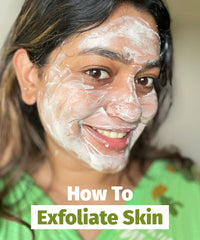The ingredients mentioned on the back of your shampoo bottles are long, complex and impossible to pronounce, often overwhelming enough for us to avoid thinking about them. Considering we use these products on a regular basis, it is bizarre that we are so obtuse about the purpose these “ingredients” serve in constituting a shampoo but by being informed, you would know exactly what you do not want in your shampoo.
To make matters simple, here is a breakdown of all the dominating ingredients found in the shampoos that you use on a daily basis and how they affect your hair. (Spoiler-Alert, their effects are ephemeral, deluding and will do more harm than good in the long run.
Sulfates
Sulfates are intrinsically detergents. They are what makes products foam and lather that allows dirt and oil to wash away from skin and hair. Sodium Lauryl sulfate is the most common sulfate that has been “deemed” safe in cosmetic products since the 1930s. Other sulphate components include sodium laureth sulfate and ammonium lauryl sulfate.
But if they are seemingly safe and effective, why do they have such a bad reputation? Well, for starters, sulfates might be too good at washing away oils from your hair, leaving your hair feeling dry and damaged. For people with particularly sensitive scalps, it may also cause itching, irritation and even redness. They can make your hair more frizzy and may also disrupt your hormones when used for prolonged periods. They are not damaging to the environment especially for aquatic ecosystems, which is where they end up after being washed out of your hair.
While you want your hair to feel clean and light, think twice before you pick a shampoo with sulfates, especially now when you have so many options that forgoes the harsh chemical completely, replacing it with other naturally hydrating and lathering substances.
Parabens
These are the chemicals that have been used in beauty products since the 1950s. Parabens too are sulphates that act as preservatives in shampoos and prevent bacterial and fungal infestation in them. Most Commonly used parabens have the word “paraben” in them like methylparaben, butylparaben, and propylparaben, but a few can be listed as Alkyl Parahydroxy Benzoates.
Parabens can be easily absorbed through skin and act like very weak estrogen in the body. Studies have detected their presence in blood after use and there are investigations underway trying to figure out if they are carcinogenic. Toxicology studies also suggest that exposure to the sun after using the product can also cause extensive skin damage.
Probably more infamous for their allergic reactions, parabens can exacerbate some skin conditions.
And although not a lot of evidence supports the cancer claim, it’s always better to be safe than sorry and switch to shampoos and other products which do not contain parabens. Lucky for us, due to the growing health concerns, the options are plenty.
Silicones
Silicones are synthetically created substances from mineral sand elements called silicon. They include dimethicone, cyclomethicone, and any other substances’ names ending in “-cone” or “-octane”.
By adding them into products, they shine, conditions and help detangling your hair. Your silky texture is a result of these chemicals but often, the consequences are grave.
Silicones are fundamental deceivers. While they can make your hair look healthy by filling the porosity and forming a thin hydrophobic (waterproof) layer around every strand, in the long run, they are deteriorating your hair conditions. Their raincoat like effect might prevent your hair from poofing up at the slightest sign of moisture but they are also preventing other moisturising ingredients from penetrating your skin, successfully weighing down your hair, especially if your hair is wavy or curly. This synthetic is also very difficult to wash out and your hair responds either by getting significantly dry and brittle or starts to become extremely greasy as your head tries to compensate for the lack of moisture.
Given the distressing disadvantages, it is high time we start to be more conscious of our choices in shampoos.
With increasing awareness, there is a growing demand for natural products, free from chemicals that can harm your skin and hair. An ideal shampoo is the one that helps enrich your innate hair texture and not change the course of it. It is delicate on your skin and does not cause allergic reactions. Vilvah offers a range of natural and organic products best suited for your hair. They include goat milk shampoo, herbal shampoo complemented by other hair products such as hair oils, hair masks and hair conditioners.
These products are efficient in moisture retention by cleaving to all the natural oils that your hair needs to protect itself from damage. They are also perfect for dyed hair as their chemical-free property does not wash away the colour. And you do not have to worry about itchy, red eyes because these products are even gentle on your eyes.
The benefits even go beyond self-care. Using sulphate-free products is not just a conscious choice for your hair, but also for the planet in whole. Constituting mostly of plant derivatives, these products are environment friendly, chipping in for the little things you can change to make this world a better place.


 Track Order
Track Order












Leave a comment
All comments are moderated before being published.
This site is protected by hCaptcha and the hCaptcha Privacy Policy and Terms of Service apply.